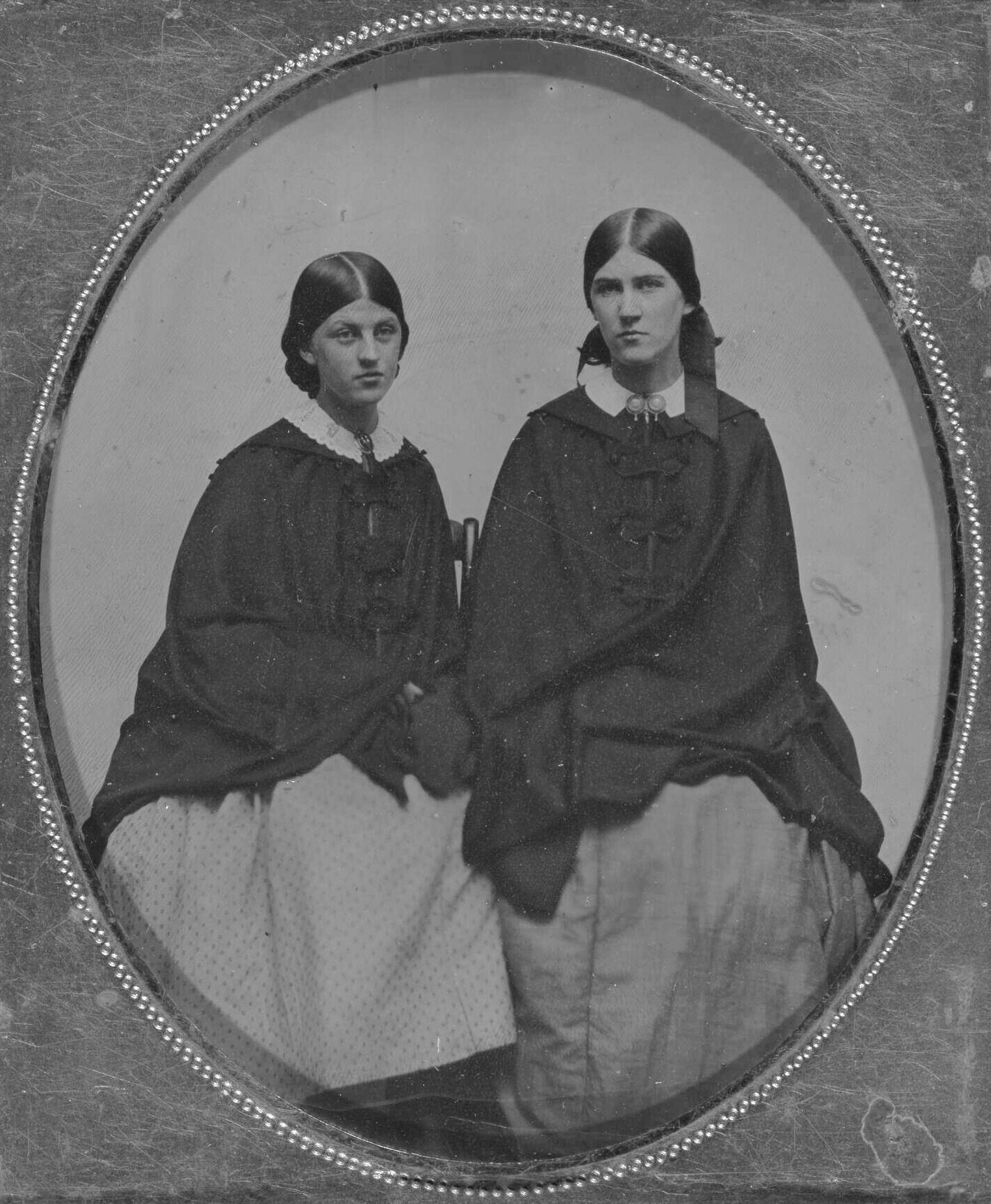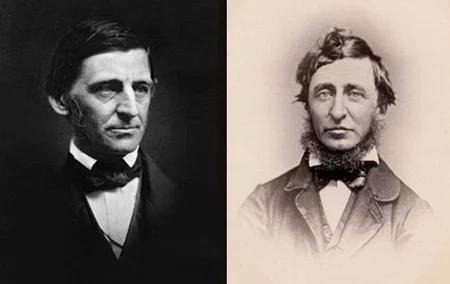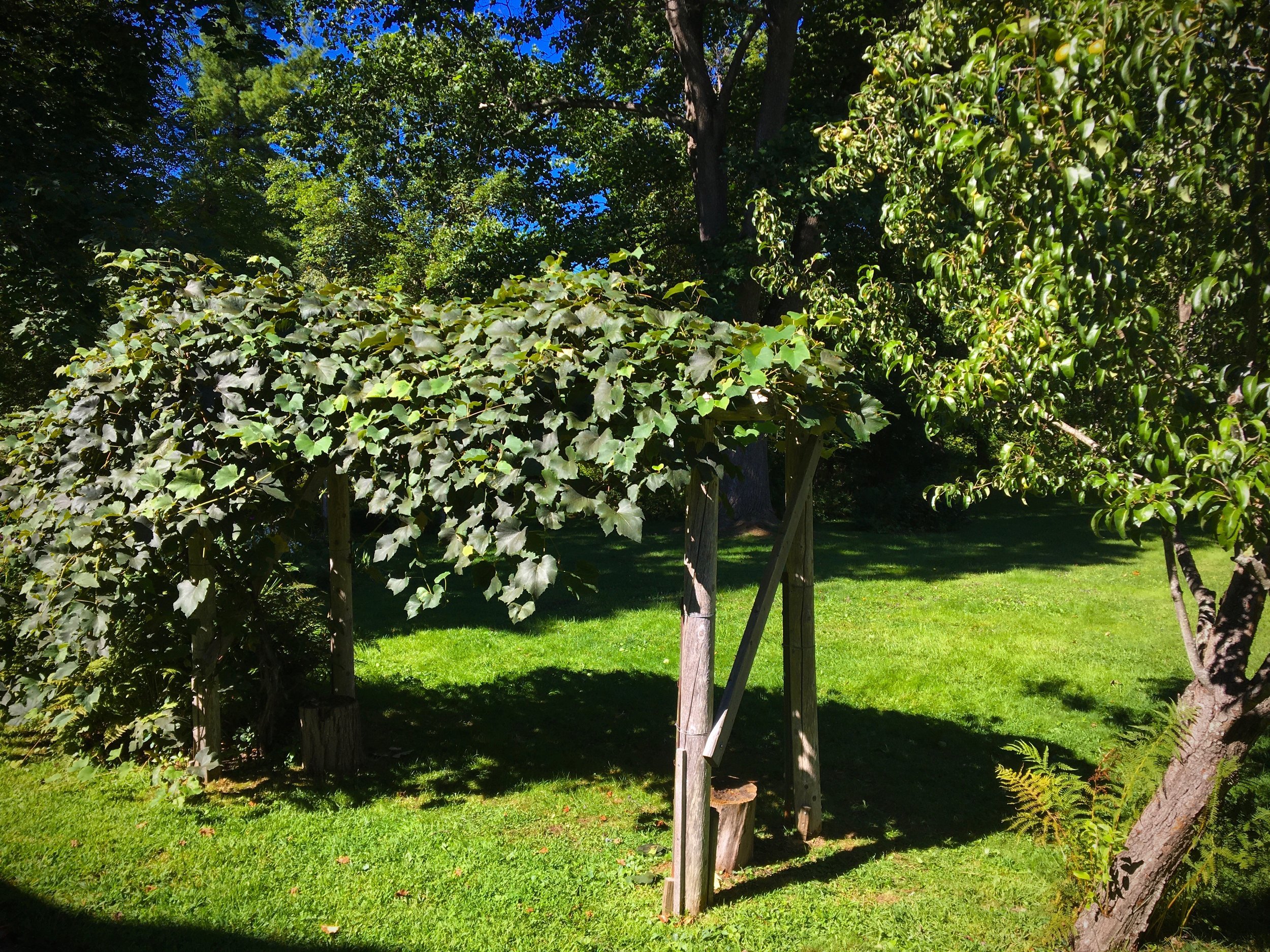
The Lyceum
A gathering place for engaging Emersonian content to educate & entertain.
Edith Emerson Forbes
A biographical profile of Ralph Waldo & Lidian’s third child, Edith Emerson, who married William Hathaway Forbes in 1865. Sociable and well-organized, Edith continued to play a vital role in her parents’ and siblings’ lives after marriage, including overseeing the repairs of the family home after the 1872 fire and working with her father on assembling the poetry anthology Parnassus.
Henry David Thoreau: Surveyor of the Soul
In his 2017 documentary film Henry David Thoreau: Surveyor of the Soul, Huey Coleman tells the story of Thoreau in his time and of the impact Thoreau’s writings and lifestyle have in our time. The film will be broadcast on Maine Public Television again this week and is also available to stream on demand.
Emerson’s Study
When the Ralph Waldo Emerson Memorial Association (RWEMA) took ownership of the Emerson House in 1930 and turned it into a seasonal museum, the original contents of Emerson’s study were moved across the street to a replica in the Concord Museum to preserve year-round access for visitors. Today, both can be visited. In 2020, the Concord Museum produced a short video tour of Emerson’s home study, discussing its importance both to Emerson and as the intellectual center of mid-19th century America.
Dispatch from Argentina
A talk given by Professor Gustavo A. Brandariz (University of Buenos Aires) on the idea of ‘nature’ in the works of Emerson, Thoreau, Sarmiento, Hudson and Martínez Estrada. Recorded in November 2024 as part of an international meeting honoring Argentinian writer Ezequiel Martínez Estrada on the 60th anniversary of his death. The linked video is in Spanish.
Margaret Fuller
The friendship between two intellectual powerhouses of the mid-nineteenth century—Margaret Fuller and Ralph Waldo Emerson—began with a visit to Concord in 1836. Fuller later joined the “Transcendental Club” and her book Woman in the Nineteenth Century—the first major feminist work in America—grew from an essay published in The Dial magazine under Emerson’s editorship.
Lidian Jackson Emerson
Continuing a series on the strong women in Ralph Waldo Emerson’s life with a profile of his wife Lidian (Lydia) Jackson Emerson, who worked to relieve the suffering of people and animals while also managing a busy household and supporting her husband’s work. A co-founder of Concord’s Female Anti-Slavery Society, Lidian encouraged Emerson’s own involvement in the abolitionist movement.
Whatever I May Call You
Referencing Jeffrey S. Cramer’s book, Solid Seasons: The Friendship of Henry David Thoreau and Ralph Waldo Emerson, to explore the question of whether the two friends called one another “Waldo” and “Henry.”
Emerson and Thoreau: Companions on a Journey of Self-Discovery
Emerson and Thoreau met in the spring of 1837 and became lifelong friends. In addition to their affinity for Concord, they shared a strong belief in the importance of nature in developing creative and independent thinking. Thoreau lived with the Emerson family for several years and built the cabin of Walden on land owned by Emerson.
Three Roads Back
The late Robert D. Richardson Jr.’s final book, Three Roads Back (Princeton University Press, 2023) explores how Ralph Waldo Emerson, Henry David Thoreau, and William James each coped with the grief of losing loved ones. Emerson lost his first wife, Ellen, to tuberculosis after less than two years of marriage, and his first child, Waldo, died of scarlet fever at the age of five.
On the Grapevine
Exploring the history of the ‘Concord grape,” developed by Concord resident—and Emerson neighbor—Ephraim Wales Bull in the 1840s. Henry David Thoreau first planted a scion of the original stock in the Emersons’ garden in the 1850s and a ‘Concord’ grapevine has grown there ever since.
Emerson’s Impact on Concord
Ralph Waldo Emerson had a lifelong association with the town of Concord, descending from one of its founders and periodically living with relatives there before making it his permanent home in 1835. Emerson was actively engaged in the town’s intellectual and civic life and both he and Lidian were involved in social reform movements. Nicknamed the “Sage of Concord,” one of Emerson’s greatest impacts on the town was drawing many of the leading writers, educators and reformers of the 19th century to his Concord home.
December Was an Eventful Month for Mr. Emerson
In the 19th century as it is today, December was a time of celebrations and gatherings. For Ralph Waldo Emerson, it was also a month when he experienced many life changes.












